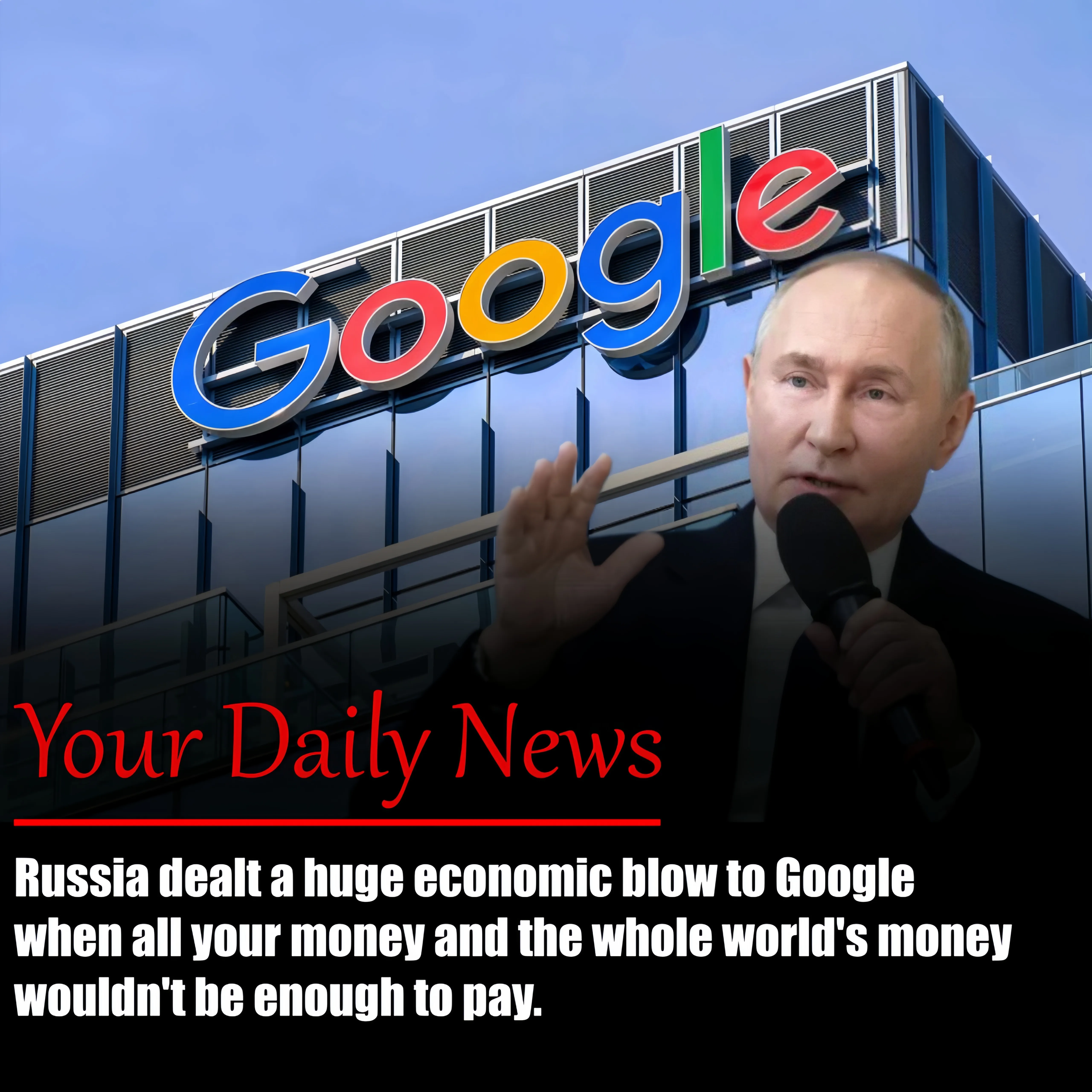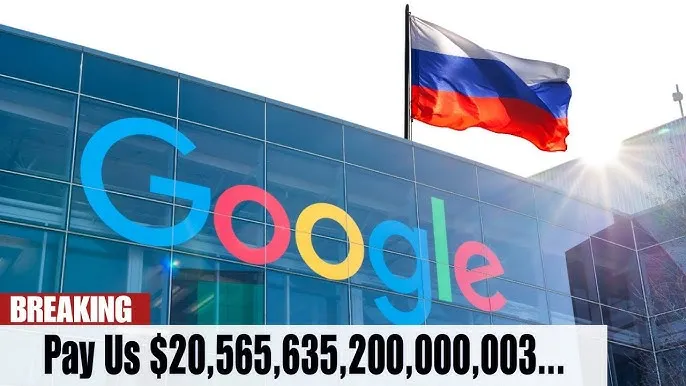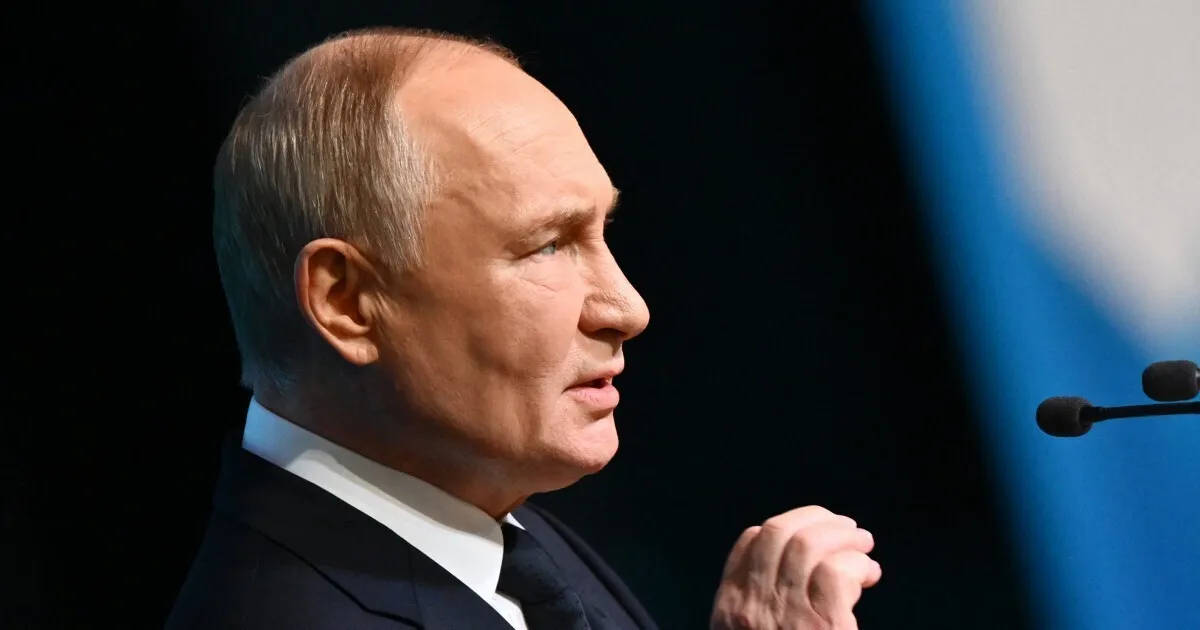In an unprecedented move, a Russian court has levied a jaw-dropping fine on U.S. tech giant Google, amounting to a staggering $20 decillion—equivalent to a two followed by 34 zeros. This amount is not only mind-bogglingly large but is also greater than the combined wealth of every person, company, and nation on Earth. While this fine is largely symbolic, it underscores the escalating tensions between Russia and Western tech companies, specifically over content moderation on platforms like YouTube.

The fine originated from a lawsuit filed against Google by multiple Russian media channels that were blocked on YouTube. In recent years, especially after Russia’s 2022 invasion of Ukraine, Western social media platforms have restricted Russian state-sponsored content to comply with sanctions or respond to misinformation campaigns. In response, Russian authorities filed lawsuits against major platforms, calling for the removal of these restrictions. The Moscow Arbitration Court set this particular fine to rise daily in the absence of compliance from Google, effectively creating a penalty with no upper limit.
To put the fine’s sheer scale into perspective, it exceeds not only the global net wealth of approximately $477 trillion but also the world’s total gross domestic product of about $105 trillion. Google’s parent company, Alphabet Inc., is valued at approximately $2 trillion—meaning that the fine is billions of times greater than Alphabet’s total worth. In fact, the amount far surpasses anything Google or any company could feasibly pay, which is why it remains largely symbolic.

Russian presidential press secretary Dmitry Peskov commented on the fine, admitting its symbolic nature. “I actually can’t even pronounce that number,” Peskov reportedly said, stressing that the astronomical sum was intended as a warning. The fine demonstrates the Russian government’s grievances against Google’s content policies and sends a strong message to tech giants that Russia expects compliance with its demands, regardless of the companies’ origins or limitations.
The strained relationship between Russian authorities and Google began well before the Ukraine conflict. In 2020, a Russian YouTube channel sued Google after the platform blocked its content in line with U.S. sanctions. Over time, the dispute intensified, especially as YouTube began restricting more Russian channels promoting pro-invasion views and misinformation surrounding the war in Ukraine. Google’s Threat Analysis Group reported banning over 3,000 pro-Russian channels in 2023, including some with prominent Russian personalities supporting the invasion.
Russia’s media regulatory body, Roskomnadzor, has repeatedly demanded that Google restore access to blocked channels, imposing fines when the tech giant failed to comply. However, despite these ongoing legal and financial pressures, YouTube remains accessible in Russia, though users report frequent issues with video streaming. Industry experts believe this decline in performance is likely tied to state censorship efforts, though Russian officials attribute it to Google’s technical limitations.

For Russia, this fine is more than a monetary penalty—it’s a statement of economic sovereignty and regulatory power. The fine highlights Russia’s intent to challenge Western tech companies that it perceives as overstepping in its jurisdiction. The implications are especially pronounced given that many Western social media platforms, including Facebook and Twitter, were blocked or made inaccessible in Russia following the Ukraine invasion. Yet YouTube, despite the government’s sanctions and fines, continued to operate in a limited capacity, suggesting a unique resilience of video-based platforms compared to other social networks.
In a broader context, the fine reflects an increasing shift away from globalized tech regulations toward a fragmented internet governed by regional or national rules. As countries like Russia, China, and others adopt more restrictive digital policies, tech companies are forced to either comply or withdraw from those markets entirely. Google, which initially entered the Russian market with high hopes for growth, has faced mounting pressure in recent years. After its assets in Russia were frozen in 2022, Google’s Russian subsidiary filed for bankruptcy, underscoring the high costs of non-compliance in restrictive environments.

While this astronomical fine may never be paid, it underscores the growing geopolitical rift in the tech world. Companies like Google face difficult decisions about how far they are willing to comply with authoritarian demands, which can have profound effects on their global operations and reputations. For now, YouTube remains one of the last Western social media platforms still accessible in Russia, even as its user experience deteriorates.
Russia’s stance reflects a broader trend as governments worldwide seek greater control over the internet and its content. For companies like Google, operating in these markets means balancing user freedom with compliance to avoid facing exorbitant penalties like the $20 decillion fine. How Google and other companies navigate this increasingly fragmented digital landscape will be a pivotal issue as tensions continue to rise.
In an age where digital freedom, censorship, and sovereignty intersect, fines like Russia’s symbolic $20 decillion send a clear message. The astronomical sum, which is purely symbolic, underscores not only the power of a government to challenge a global corporation but also the growing influence of national policies on digital space. The world is watching, and as Google and other tech giants adapt to these challenges, they set the stage for the future of international digital governance.